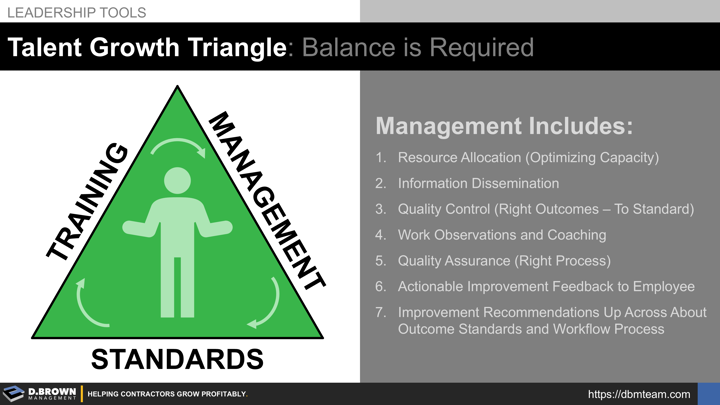There are no shortcuts. Accountability alone is not the same as management. Compensation will not create capabilities.
Assuming you have selected the right person for the job, everything starts with standards that are at an appropriate level for the company's stage of growth.
Training the person to those standards is the next step. This is typically best done in alignment with the work they are doing so that management and training go hand-in-hand.
When training someone based on the work available, ensure they receive training on all aspects of the role by having a development plan that defines all general competencies, skills, and specific tasks for the role defined. With this list in hand, all parties including the person, the manager, and the manager-once-removed and/or someone from human resources can monitor progress. Think about how apprentices have their work hours for specific scopes of work signed off.
The Job Instruction (JI) program from WWII provides a great example of how to effectively train people for a role.
After that, it is all about management. Managers have two foundational accountabilities: delivering consistent outcomes given inconsistent input and developing their team. Management includes:
- Resource Allocation (Optimizing Capacity)
- Information Dissemination
- Quality Control (Right Outcomes – To Standard)
- Work Observations and Coaching
- Quality Assurance (Right Process)
- Actionable Improvement Feedback to Employees
- Improvement Recommendations Up Across About Outcome Standards and Workflow Process
The manager of a team is the single biggest variable in the team's performance. If there is one underperformer on the team, it may be the employee. If there are multiple, it is likely the manager. If that manager is you, be objective about it and double-down on your own learning. The discipline of management is difficult but very rewarding.
Look at this checklist for management promotions as a starting point for improving management capabilities throughout your company.

